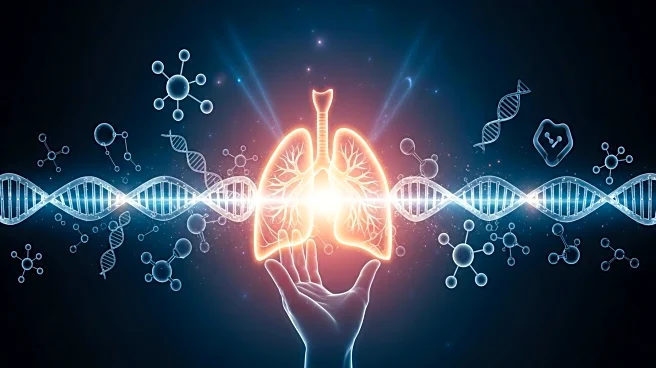What's Happening?
The World Congress on Lung Cancer (WCLC) in Barcelona showcased mixed results from various lung cancer trials. AstraZeneca's FLAURA 2 study reported positive overall survival data for its EGFR inhibitor Tagrisso combined with chemotherapy, showing a 23% reduction in the risk of death compared to Tagrisso alone. However, Summit Therapeutics' HARMONi trial of ivonescimab plus chemo failed to show significant improvement in overall survival. Meanwhile, MSD and Daiichi Sankyo's antibody-drug conjugate ifinatamab deruxtecan demonstrated promising results in a phase 2 trial for small-cell lung cancer.
Why It's Important?
The mixed results from lung cancer trials highlight the challenges and opportunities in developing effective treatments for this complex disease. Positive data from AstraZeneca and MSD/Daiichi Sankyo underscore the potential of targeted therapies and combination regimens in improving patient outcomes. However, the setbacks faced by Summit Therapeutics illustrate the difficulties in achieving consistent efficacy across diverse patient populations. These findings may influence future research directions and treatment strategies in lung cancer.
What's Next?
The promising results from successful trials may lead to further clinical development and potential regulatory approvals. Companies facing challenges may need to reassess their trial designs and explore alternative approaches to improve efficacy. The WCLC findings may also prompt discussions on optimizing treatment regimens and addressing disparities in patient responses.
Beyond the Headlines
The WCLC presentations reflect the ongoing evolution of lung cancer treatment, with a focus on personalized medicine and innovative therapeutic approaches. The mixed results highlight the importance of understanding patient heterogeneity and tailoring treatments to individual needs.








